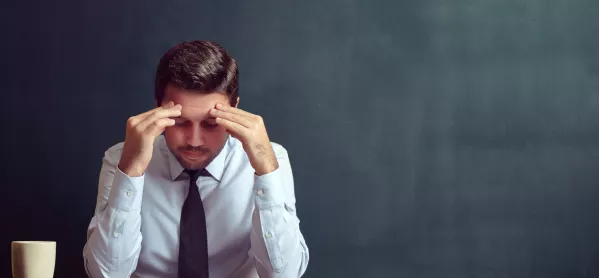Routine Ofsted inspections should be halted because of the increasing workload pressures places on teachers during the coronavirus outbreak, the NEU teaching union has said.
Mary Bousted and Kevin Courtney, joint general secretaries of the NEU teaching union, have written to Ofsted’s chief inspector, Amanda Spielman, urging her to suspend routine school inspections during the coronavirus outbreak, which they described as a time of “excessive” workload for teachers.
Coronavirus: ‘All’ inspection delays likely to get nod
Coronavirus: Ofsted sorry for death guidance ‘distress’
Related: Ofsted rejects rumours of ‘panic’ Covid-19 inspections
They said that inspections should only be carried out at schools where there are safeguarding concerns.
“We agree with your observation that: ‘The spread of Covid-19 poses serious challenges to schools, colleges, childcare and social care providers - not least the potential impact on attendance and staffing,’” the letter reads.
“However, we are very concerned, given the serious challenges that Covid-19 poses for schools, that Ofsted is still planning to conduct inspections.
“We fail to understand that, in light of the government’s decision to move to the ‘delay’ phase, Ofsted has revised its deferral policy to defer inspections on providers that are ‘affected’.
“We have to ask the question - can you name any school in England which has not been affected by Covid-19?”
Dr Bousted and Mr Courtney said that even in schools with no reported cases, staff were “highly alert and responding to a range of pressing concerns and issues” regarding how to manage the coronavirus epidemic, all of which involved “changes to school routines and an intensification of already excessive workloads”.
The letter described how teachers had to cope with a range of new responsibilities in the wake of the outbreak, such as managing the anxieties of pupils and parents about the virus and adjusting to frequent changes in guidance from the Department for Education on Covid-19.
They also had to ensure pupils were safe from transmission and infection, make special arrangements for pupils and members of staff who were vulnerable and prepare work for pupils in the event of school closures.
On Saturday Sean Harford, Ofsted’s national director of education, told delegates at the annual conference of the Association for School and College Leaders (ASCL) that Ofsted would “look favourably” on school requests to delay inspections at the current time.
His announcement followed controversy over comments posted by Ofsted on its social media accounts suggesting it was “business as usual for its inspections teams”.
Dr Bousted and Mr Courtney’s letter alluded to this, describing the “business as usual” comments as “crass”.
“After Friday’s crass Ofsted statement, we note the more emotionally intelligent statement on Saturday, that Ofsted is monitoring the situation closely and is in daily contact with the DfE,” they said.
Geoff Barton, general secretary of ASCL, has also called on the government to halt inspections at the current time.
The letter from the NEU noted that the Scottish inspectorate was taking a different approach and had suspended all inspections.
“We urge Ofsted to take the same course of action - suspend school inspections now so that school leaders can focus on what is important, not what is immediate,” they said.
A spokesperson for Ofsted said: “Ofsted is working closely with the DfE and monitoring the situation day by day. In line with current government advice, normal inspection activity should be maintained as far as possible.
“However, the spread of the virus presents serious challenges for providers that are affected. In line with the potential for this to be an ‘exceptional circumstance’, we will carry out a risk assessment with the providers when we announce the inspection.
“This will give the leaders/managers of providers the opportunity to inform Ofsted about any current coronavirus impact on their provision.
“Using this information, we will make an assessment and a deferral decision, as appropriate. When inspections go ahead, inspectors will be sensitive to increases in user absence or absence of key staff, and will reflect this in the inspection report.”




